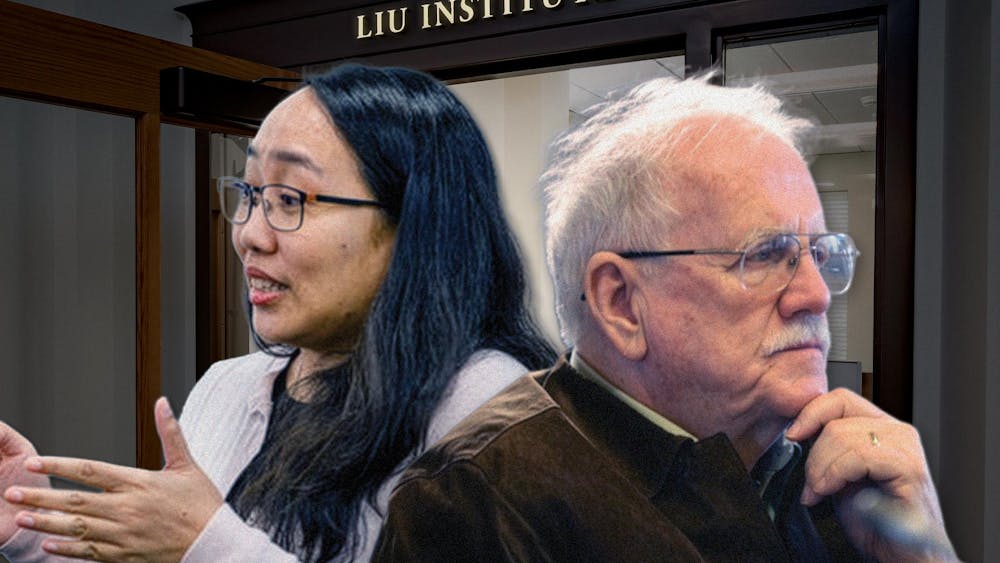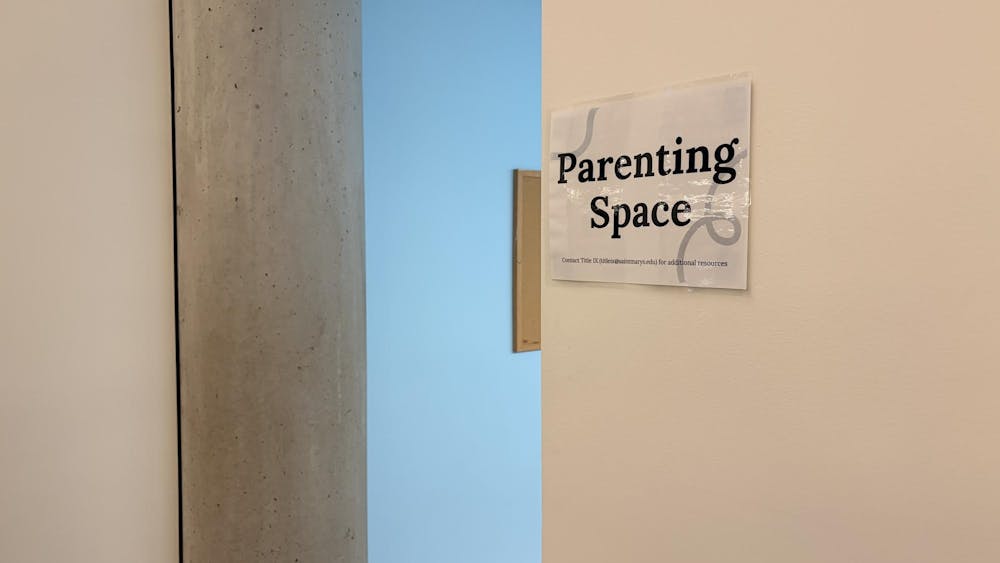Who they are:
Elizabeth Boyle, the ticket’s candidate for student body president, is a junior from Long Island, New York, majoring in political science and peace studies. Boyle lives in Breen-Phillips Hall, and during her time at Notre Dame has helped spearhead the Stand 4 IX movement and currently serves as the director of gender relations in student government.
Patrick McGuire, the ticket’s candidate for vice president, is a sophomore from San Antonio, Texas, and majoring in economics and sociology. McGuire lives in Siegfried Hall, where he currently serves as dorm president, and has worked in University affairs and University policy.
Top Priority: Reforming non-discrimination clause
Notre Dame’s non-discrimination clause still does not protect students from discrimination based on sexual orientation and gender identity. As its top priority, the Boyle-McGuire ticket is looking to revise the clause, extending non-discrimination protection to all students.
“It’s something that I tried to take on last year but just didn’t have the capacity or the team power to be able to do it,” Boyle said. “ … If we leave and are able to include both sexual orientation and gender identity into this non-discrimination clause, we can say that now fully students do have this legal backing and they have something to point to when administrators or people at this University may lack in support for them or their policies.”
While Boyle acknowledged this is a difficult fight that has been going on for 30 years, she and McGuire believe persistent, grassroots advocacy could help the ticket achieve this goal.
Best Idea: Reforming parietals amnesty
While other tickets recognized the need to reform parietals, the Boyle-McGuire ticket’s plan for this issue reflected an acute understanding of the issue. Under the current system, a Title IX incident would have to occur and be reported for amnesty to be granted for a parietals violation. The ticket is proposing students no longer be forced to file a Title IX request if they are to receive amnesty.
“In the campus climate survey, the last time it came out, about 40 percent of students said they wouldn’t leave a dorm if it was dangerous if it meant breaking parietals because students are so afraid of getting in trouble for breaking parietals,” Boyle said. “And I think we’ve really lost sight of who we are if students are more comfortable with staying in a situation that would put them in such grave harm then in breaking a minor law.”
This platform promise would allow students to leave a dangerous situation and still be granted amnesty for parietals, and it reflects one of the most tangible attempts of any ticket to combat sexual assault on Notre Dame’s campus.
Worst Idea: Trying to do too much with a large team
While there are certainly benefits to the Boyle-McGuire ticket’s team of 50 members, this structure may create problems for the ticket with too many ideas to account for and not enough focus on achieving a single goal. Additionally, many goals on the ticket’s platform do not seem fully fleshed-out and are difficult to achieve, such as “renovating DeBart classrooms,” “[fixing] the puddles” and “[working] on Coach USA.”
Most Feasible: Implementing Callisto 2.0
Fitting with the ticket’s focus on sexual assault prevention, Boyle-McGuire’s plan to implement Callisto 2.0, a sexual assault reporting system, is one of the ticket’s most feasible campaign promises. Boyle’s consistent experience working on implementing the system and her understanding of the University’s concerns in adopting it will give the ticket a leg up where other student governments have failed.
“[Implementing Callisto] would be a very tangible, powerful and attainable measure for students’ safety,” McGuire said.
Least Feasible: Stipends and academic credit for student activities
As part of its efforts to increase student involvement outside of class, the Boyle-McGuire ticket has proposed giving students academic credit or even stipends for participation in extra-curricular activities. While these initiatives would probably attract students, the University would most likely not be receptive to the idea due to the financial cost it would require and the potential for decreased enrollment for classes taught by faculty members.
Bottom Line: Tangible, important goals and experience
In all, the Boyle-McGuire platform focuses on the most important issues facing the tri-campus community — sexual assault and discrimination — and provides concrete and well-thought-out ideas to address these concerns. Boyle’s and McGuire’s experience in different areas of student government will help them to effectively implement these goals. If the ticket can find a way to coordinate all the voices in their campaign, this ticket has the chance to make real, meaningful change.
Read More
Trending









